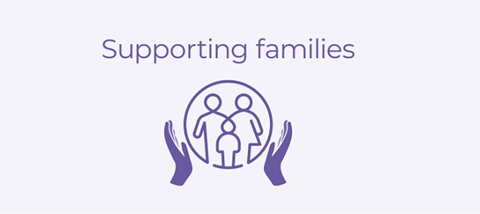
Some need additional or different support compared with those of the same age to ensure that everyone benefits from everything they participate in. We want to address some of the important questions around these needs.
The road to acceptance can be a long one for families of children with additional needs or disabilities. Some can reach this point sooner than others, while some struggle to get there at all.
There are many moments along the way where parents and other family members can get stuck. To help us understand a little of what these families may be experiencing, as well as how we can help, here is a quick guide to ‘the road to acceptance’ written from my own experience as an additional needs parent.
Pre-diagnosis: worry
Those nagging doubts families start to get… are they just being paranoid? Is there something wrong? Is it serious? How do they find out? Whom do they ask? Are they really ready to find out? Are they secretly avoiding this? Eventually they ask, or someone else asks, and they start to find out…and it can take ages! In our case, we noticed that James was not developing as quickly as his sister had. At first we put it down to boys not always developing at the same speed as girls, but bit by bit things got ruled out until we finally got a diagnosis.
Diagnosis: shock
James was only 2 and a half when we received his diagnosis. It was a hammer blow to us all as we tried to understand what we had just been told: that James was autistic with a learning disability (he has since added epilepsy to his collection). Looking back now, we realise that what we were experiencing was grief.
Parents of children with additional needs or disabilities may also experience this grief, going through the various stages listed below and maybe getting stuck on one of them (denial, for example). Sometimes, just when they think they have made it to acceptance something happens that spins them back to the beginning all over again.
Five stages of grief
Denial / isolation: The situation can become overwhelming, so some hope it will go away if they can just block it out.
Anger: Some leave the stage of denial wanting to lash out, even at those who are trying to help. Around 56 per cent of families with a disabled child experience significant relationship difficulties or breakups.
Bargaining: As they try to rationalise it, they might try to do a deal with God, such as: “If you make this go away I’ll…” They will try anything to protect themselves from the painful reality.
Depression: The regret over lost dreams and the awareness that it isn’t going away can leave some hopeless to the point of depression.
Acceptance: This is not a gift that is received by everyone. It is not about being brave. It is a gradual understanding of the situation and a developing desire to move forward and make the best of things.
What else can we do?
I have found Welcome to Holland by Emily Perl Kingsley a real help, and have often passed it on to other families, as well as to children’s and youth workers.
Encourage families that they are not going through this alone. We are with them and God stands with us. As Moses reminded the people of God: “Be strong and courageous. Do not be afraid or terrified…for the Lord your God goes with you; he will never leave you nor forsake you” (Deuteronomy 31:6).
So let’s all go on the journey together, shall we?
MARK ARNOLD is additional needs ministry director at Urban Saints (urbansaints.org/additionalneeds) and co-founder of the Additional Needs Alliance. He is a Churches for All and Living Fully Network partner, and member of the Council for Disabled Children. He is father to James, who has autism, and blogs at theadditionalneedsblogfather.com




























